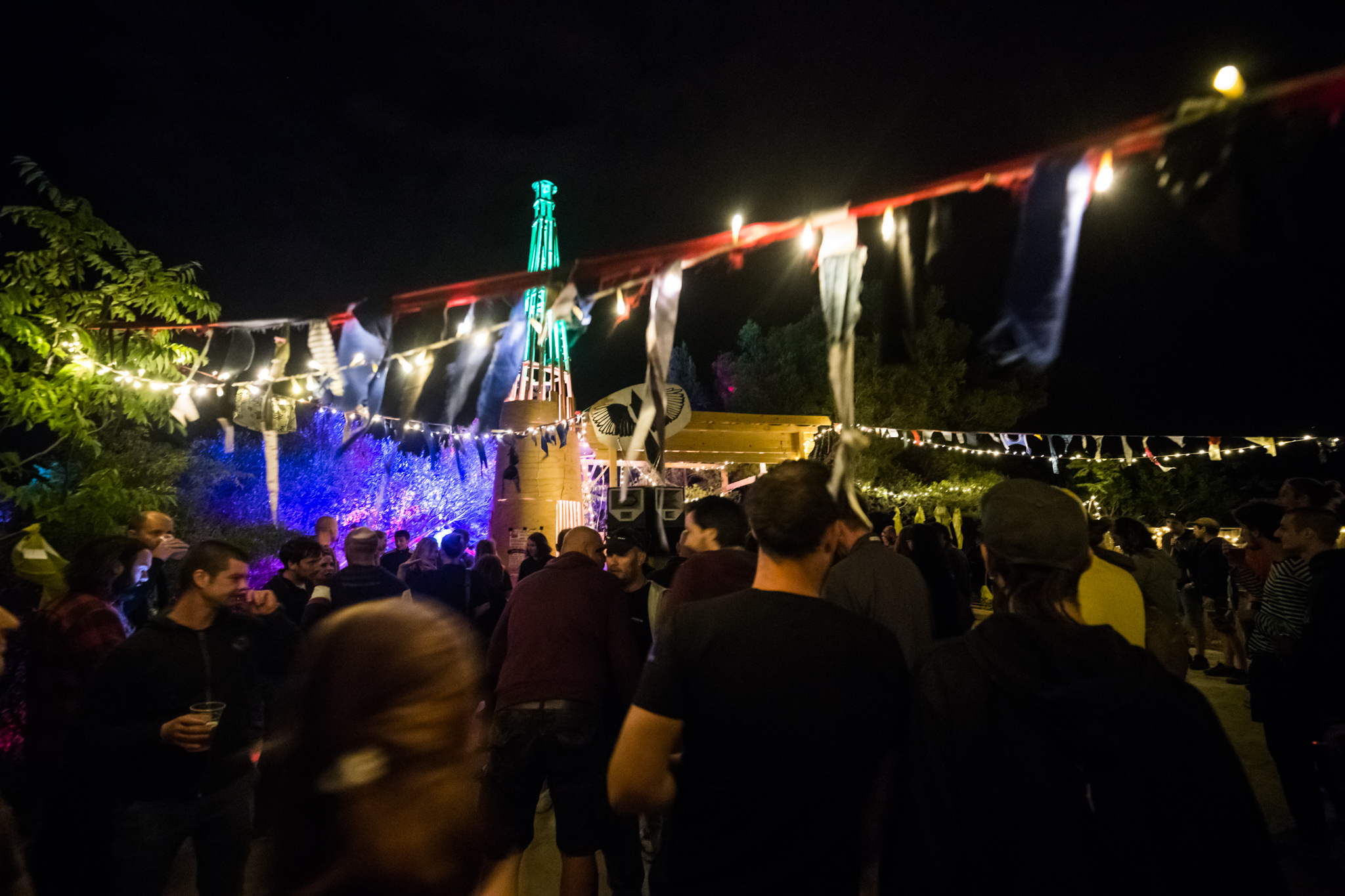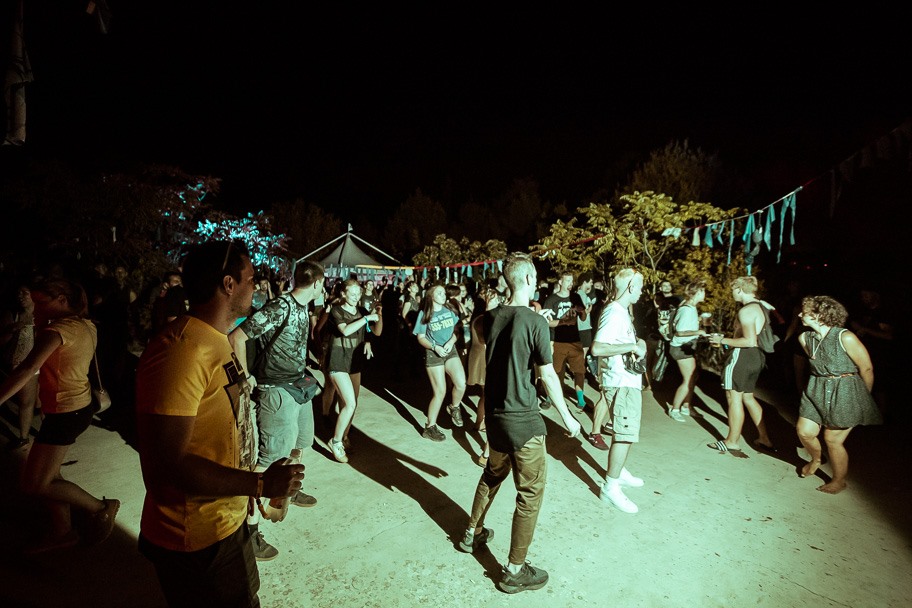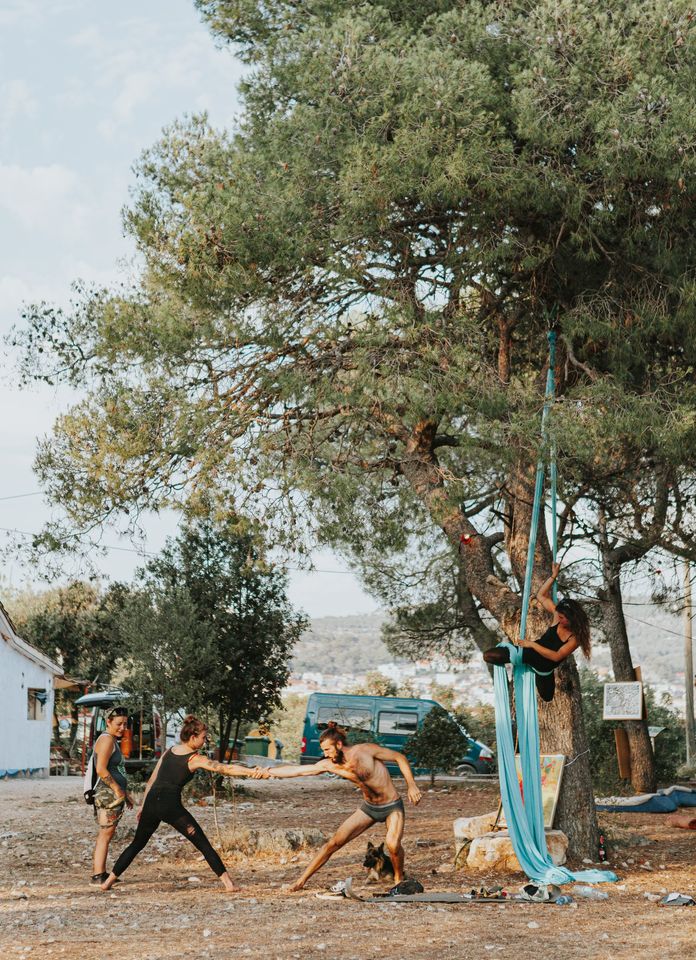Over 10, 000 Attend Music Festivals in Sibenik In 2020 - Zero Infections
September 22, 2020 - For six consecutive weeks this summer, the Martinska venue alone welcomed over 10, 000 international visitors to its music festivals in Sibenik. Zero cases of Coronavirus occurred.
Over recent years, three things have firmly placed Croatia on the international stage – Game Of Thrones, the World Cup and music festivals. Running for over a decade now, music festivals are the oldest of these. They have elevated places like Pula and Tisno to become among the most-Googled destinations in the country.
So popular now are Croatia music festivals, that many say the summer season of music festivals in Croatia has supplanted the famous hedonistic holidays of Ibiza as the hippest place to go. Incredible disappointment was therefore felt by tens of thousands of expectant party people earlier this year when most of the international Croatia music festivals decided to cancel their 2020 events. They did so in response to the Coronavirus pandemic.
One venue stood alone – Martinska, a 20-year-old site for music festivals in Sibenik. Over six consecutive weeks, all of their 2020 festivals took place. They did so under strict adherence to epidemiological guidelines. And, following a wait of two weeks after the final event (to cover any potential Coronavirus incubation period), site organisers Pozitivan Ritam have released their results - zero cases of Coronavirus.
“It's not only the five festivals and one concert event that we did,” Pozitivan Ritam director Vedran Meniga told TCN, “The Fortress of Culture in Sibenik had more than 30 events this summer and Project Vojarna in Sibenik had two parties this year with over 4000 people. On one RTL television show, they described Sibenik as the Croatian Wuhan when 3000 people were in the town for one techno party there. But, at the end of the season, none of these events resulted in a single Coronavirus infection. Not one.”
Following a successful lockdown earlier in the year, cases of Coronavirus were limited in Croatia at the start of the season. Yet, some were understandably hesitant to come. Music festivals in Sibenik still managed to attract visitors from Britain, France, the Netherlands, Belgium and Germany to Martinska. Even after the middle of August when cases began to appear in other regions and international visitor numbers dried up, the festival site was still busy with Croatians and partygoers from near-neighbouring countries. At the end of August, there were no more than five infected persons in Sibenik. None were music festival or music event attendees. Throughout much of the summer, Sibenik recorded zero cases.
“The music festivals in Sibenik are proof that it's possible to work doing events during the era of Corona,” Meniga tells TCN. “Of course, all of our events were open-air and no doubt that helped.”
"When cases started to reappear elsewhere at the end of July, I went to the civil authorities and epidemiologists immediately, before they came to us,” says Vedran. “The civil authorities and the police grant the license for the events. I presented them with a plan and they were satisfied. They allowed us to continue.”
“It helped that Martinska is across the bay from Sibenik. Festival attendees don't even need to go into the town to come, they drive here straight from the Magistrala (Croatian coastal highway). Also, Martinska's capacity is five times bigger than the numbers we were going to cater for. The site can accommodate six to seven thousand. We expected no more than 1500 daily. That was more than enough space to maintain physical distance. We carefully took all contact details for each attendee at the entrance, in case something appeared and we (or authorities) had to later contact people. We also took everyone's temperature. And in addition to the required epidemiological sanitization, we also installed disinfectant pillars at every single point where money or goods exchanged hands. All our staff wore not only masks but also gloves. Four times the civil authorities made surprise visits to the site for inspection along with epidemiologists and police. Each time they were completely satisfied.”
Current forecasts for the Coronavirus response predict that a vaccine will not be available to cover everyone until the autumn of 2021. This has serious implications for at least one more tourist season. Yet, with the incredible achievements seen this summer at Martinska's music festivals in Sibenik, we can all take hope that events, tourism, and even life itself may continue to be enjoyed in the near future, as long as we're all smart about it.
All photos 2020 Martinska © Seasplash / Pozitivan Ritam.
For the latest travel info, bookmark our main travel info article, which is updated daily.
Read the Croatian Travel Update in your language - now available in 24 languages
Nightclubs Strike Back at Headquarters, Weekend Party Starts at 19:00
September 11, 2020 - The Voice of Entrepreneurs Association and members of the Initiative of Bars and Nightclubs have been warning the competent institutions for days that, due to the epidemiological measures in force, over 1000 facilities will be completely closed and workers will be fired. For this reason, nightclubs strike back as they have organised an action "5 hours forward, 25% backward" during which, on September 11 and 12, they will be open from 19:00 to 24:00, Slobodna Dalmacija reports.
The measure restricting work until midnight has been extended and it has been announced that it will be extended until the end of the year. That is why many nightclubs have decided, in compliance with all epidemiological measures, to open their doors this weekend from 19:00, five hours before midnight.
''Our goal is to open clubs at a time when we're allowed to work, for people who support us and send a message that we aren't spreaders of the virus as we're being stigmatised to be. Friday is exactly 28 days since the work ban, the number of patients isn't falling, and the minister is extending the measures. We ultimately turned out to be the culprits for everything, regardless of whether we adhere to the measures or not. We don't complain about the set rules, keeping a distance, measuring temperatures and the like, we can respect all that, we just ask to be allowed to work. I'd like to invite everyone who supports us to visit the clubs that are part of the action on Friday and Saturday,'' said Bozidar Bulic, the owner of a disco club.
''It's worth recalling that more than 15,000 employees and associates (musicians, singers, security guards, marketing agencies, beverage distributors, DJs, photographers, public address and lighting technicians) will lose their jobs in the difficult economic and social situation ahead, if such measures are continued. The Voice of Entrepreneurs Association supports all those who want to work,'' the Association stated.

For the latest travel info, bookmark our main travel info article, which is updated daily.
Read the Croatian Travel Update in your language - now available in 24 languages
Croatia Among Most Efficient EU Countries in VAT Collection
ZAGREB, Sept 10, 2020 - Differences between expected VAT revenues and revenues actually collected in EU member states are still high despite a slight improvement, and Croatia is among the most efficient countries in VAT collection, the European Commission said on Thursday.
The Commission released data for 2018 showing that the member states lost an estimated €140 billion in expected Value-Added Tax (VAT) revenues.
There were great differences among the member states. The highest national VAT gap was recorded by Romania, with 33.8% of VAT revenues going missing in 2018, followed by Greece (30.1%) and Lithuania (25.9%). The smallest gaps were in Sweden (0.7%), Croatia (3.5%), and Finland (3.6%). In absolute terms, the highest VAT gaps were recorded in Italy (€35.4 billion), the United Kingdom (€23.5 billion), and Germany (€22 billion).
In 2018, Croatia collected €252 million less VAT revenue than expected.
"Although the overall VAT Gap, which is the difference between expected VAT revenues in EU member states and those actually collected, is still extremely high, it has slightly improved in recent years. However, figures for 2020 forecast a reversal of this trend, with a potential loss of €164 billion in 2020 due to the impact of the coronavirus pandemic on the economy," the Commission said.
"The considerable 2018 VAT Gap, coupled with forecasts for 2020 -- which will be impacted by the coronavirus pandemic -- highlights once again the need for a comprehensive reform of EU VAT rules to put an end to VAT fraud, and for increased cooperation between the Member States to promote VAT collection while protecting legitimate businesses," it added.
"Today's figures show that efforts to shut down opportunities for VAT fraud and evasion have been making gradual progress -- but also that much more work is needed. The coronavirus pandemic has drastically altered the EU's economic outlook and is set to deal a serious blow to VAT revenues too. At this time more than ever, EU countries simply cannot afford such losses. That's why we need to do more to step up the fight against VAT fraud with renewed determination, while also simplifying procedures and improving cross-border cooperation," said Paolo Gentiloni, Commissioner for Economy.
For the latest travel info, bookmark our main travel info article, which is updated daily.
Read the Croatian Travel Update in your language - now available in 24 languages
Join the Total Croatia Travel INFO Viber community.
Plenkovic Wants Coronavirus Red List To Take Counties Into Account
ZAGREB, Aug 31, 2020 - Croatian Prime Minister Andrej Plenkovic said on Monday that he would talk with Slovenian PM Janez Jansa about putting counties and not countries on the coronavirus red list.
Plenkovic and six other European prime ministers are attending the Bled Strategic Forum, and on the fringes, he will meet with Jansa and Hungarian PM Viktor Orban.
Speaking to the press, Andrej Plenkovic said the meetings would discuss "joint efforts to reduce infection and its cross-border effects."
In mid-August, Slovenia put Croatia on the coronavirus red list, which means mandatory quarantine for anyone arriving from Croatia. In order to avoid quarantine, many Slovenian tourists left Croatia.
"Our position is to attempt, notably in Slovenia, not just because of Croatia but also for the sake of numerous Slovenians who are our frequent and dear quests, to see the county level of infection as a criterion, something like Germany has done. I think there is room for that and that that is the best option."
He said the Bled Strategic Forum, the most important foreign policy event in Slovenia, was a good opportunity for European states to analyze their management of the coronavirus pandemic so far.
We can slowly sum up what has been good since January, he said, "what we have done well together, and how to respond together in the future when it comes to a vaccine, the procurement of medical and protective equipment."
Slovenian reporters asked him if he and Jansa would discuss the territorial dispute between the two neighboring states.
"Our position has been clear the entire time. We had Slovenia's initiative before the European Court in Luxembourg and you saw the decision, that it's not competent. We are still willing to talk about the border with Slovenia and our stance has not changed during my whole term," Plenkovic said, adding that it was necessary to find a "good, sustainable solution acceptable to both countries."
The 15th Bled Strategic Forum is focusing on Europe after Brexit and COVID-19. Also attending are Czech PM Andrej Babis, Polish PM Mateusz Morawiecki, Bulgarian PM Boyko Borissov, and Serbian President Aleksandar Vucic. Italian PM Giuseppe Conte is participating via video link.
The foreign ministers of Croatia, Hungary, Poland, Slovakia, the Czech Republic, and Romania also arrived in Bled for a panel in which the EU High Representative for foreign and security policy, Josep Borrell, will also take part.
For the latest travel info, bookmark our main travel info article, which is updated daily.
Read the Croatian Travel Update in your language - now available in 24 languages


